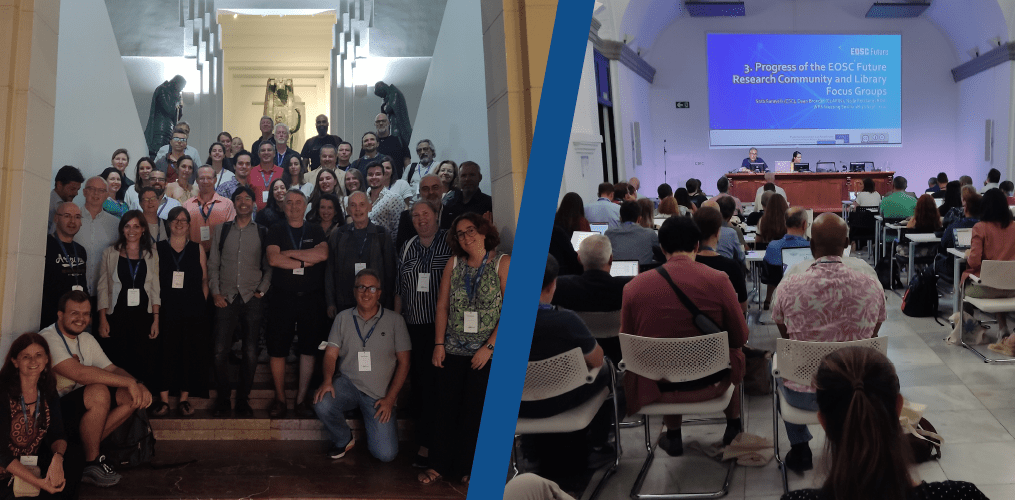
From 28–30 September, LifeWatch ERIC hosted a Consortium Meeting of the Horizon2020 project, EOSC Future, at la Casa de la Ciencia, in Seville. At 18 months into the project, the meeting served to review its execution thus far, as well as the next steps to be followed. All the consortium partners were represented, with 71 people attending in person and about 30 online. On the first day, the morning was dedicated to “WP6: Integration of Community Services and Products into EOSC”, which is led by LifeWatch ERIC, and involves the demonstration of EOSC value through Cross-domain Research Science Projects (10 Science Projects are involved in this WP) which will mobilise the research communities for widespread the use of EOSC resources.
Read more about the project’s ambitions:
EOSC Future will build on the existing baseline for the European Open Science Cloud to deliver a platform with a durable set of user-friendly components that are designed for the long haul. It will adopt a system-of-systems approach to the EOSC platform, linking together other research portals, resources and services to respond to the data needs of a wide range of researchers.
One way to think about EOSC is as a fully operational web of data and related services founded on FAIR protocols, principles and standards for accessing interoperable datasets. In practice, EOSC Future will work with key stakeholders to ensure a smooth user experience, developing:
- EOSC core, the set of enabling services needed to operate the EOSC
- EOSC exchange registering resources and services from research infrastructures, other EOSC projects and science clusters to the EOSC and integrating them with the EOSC core functionalities
- the EOSC interoperability framework will provide guidelines for providers that want to integrate services or data into EOSC
EOSC Future will engage with users throughout the different development stages to make sure the EOSC matches researchers’ needs and is intuitive. It will also provide support and training to make sure users can make the most of the EOSC platform.
To learn more about the projects in which LifeWatch ERIC is involved, please visit our Related Projects page.